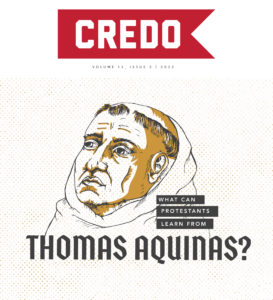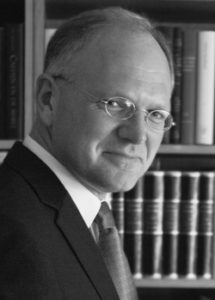
Why did Martin Bucer retrieve Thomas Aquinas?
T he answer to the above question is quite easy: because he had no choice! After Martin Bucer (1491-1551) attended the Latin school in his hometown Schlettstadt, where he received an education in the spirit of Upper Rhenish humanism, he entered in 1507 the Dominican Order, where further studies in the scholastic sense of Thomas Aquinas’ theology followed. For ten years he was immersed in the thought of this theologian who was the leading Dominican thinker and Bucer bought most of his works as a 1518 inventory of Bucer’s books demonstrates.
he answer to the above question is quite easy: because he had no choice! After Martin Bucer (1491-1551) attended the Latin school in his hometown Schlettstadt, where he received an education in the spirit of Upper Rhenish humanism, he entered in 1507 the Dominican Order, where further studies in the scholastic sense of Thomas Aquinas’ theology followed. For ten years he was immersed in the thought of this theologian who was the leading Dominican thinker and Bucer bought most of his works as a 1518 inventory of Bucer’s books demonstrates.
After his ordination in Mainz in 1516, he studied at the University of Heidelberg from 1517. Through his humanistic studies he became enthusiastic about Erasmus. At the same time, he encountered Protestant theology at Luther’s disputation in April 1518. When Bucer left the Dominican order in 1520 he certainly did not leave Thomas behind as this main medieval scholastic had become a fundamental part of Bucer’s thinking, integrating Thomas with Erasmus and Luther, the two other key influencers on Bucer’s theology.
Love for God and love for the neighbour is the central theme in Thomas’s theology and it is no surprise that the title, content and structure of Bucer’s first work deal with this theme: ‘Das ym selbs niemant, sondern anderen leben soll, und wie der mensch dahin kummen mög’ which can be transalted as, “That no one lives for himself, but that rather one should live for others, and how an individual can do so,” published in 1523.All through Bucer’s works Thomas remains an authority also for defending the Reformation. Click To Tweet
This line of thought would remain characteristic for Bucer as we can see in his fascinating combination and interconnection of justification and sanctification, in his focus on a devoted life making him the pietist among the reformers.
But Thomas is also present in Bucer’s doctrine of predestination, his appreciation of natural law, reason, knowledge and study. All through Bucer’s works Thomas remains an authority also for defending the Reformation.
This approach proves once again that 1517 was not a breach in theology but that much of the good of medieval theology was incorporated in a fundamental reformation of theology. For Bucer – and for us! – Thomas is not someone from the ‘previous’ church but a constant and valuable Christian companion.

